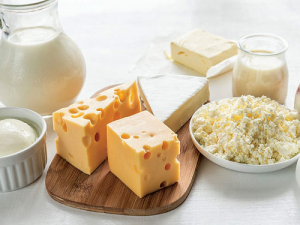My role as head of Cooperatives Business NZ gives me insight into the United Nations’ 17 sustainable development goals and, more importantly, the part that cooperatives and the co-op movement globally will play in achieving these by 2030.
In NZ, cooperatives, mutuals and societies together generate almost one-fifth of our GDP and serve one in three Kiwis as members. Co-ops worldwide now employ 250 million people, and one in six people belong to at least one.
On July 7, in Port Vila, Vanuatu, I attended a celebration of the International Day of Cooperatives; this was the 96th consecutive year of this celebration globally and this year’s theme was ‘Sustainable Consumption and Production of Goods and Services’.
Clearly the consumption and production of food dominates this subject, and cooperatives sit at the interface of agricultural producers and consumers globally, with an opportunity to influence the right behaviour by both.
Of the food produced on Earth, the UN estimates that one-third is wasted globally (over 1.3 billion tonnes pa) while 800 million humans are under-fed and starving each day.
In NZ, our household and commercial food wastage is no better than other OECD countries: only a small portion of our ‘date-expired’ food is going to people in poverty; most is dumped.
The UN predicts that given the planet’s current levels of food consumption and production, and given global population growth forecasts, we would need three planet Earths to survive when the world’s population reaches 9.5 billion by 2045.
Clearly we must change our consumption and production behaviour significantly and quickly.
This includes less food wastage, alternative (and more affordable) foods, sustainable farming and food manufacturing practices, and the efficient use of our natural resources.
What can we do here in NZ as members of the public, workers in businesses and organisations, and members of co-operatives?
- Burn less fossil fuel, and use more hydro, solar, wind and geo-thermal power. What about tidal power?
- Educate our homeowners, businesses and manufacturers to use energy more efficiently.
- Adopt and use electric vehicles.
- Recycle packaging materials (households and businesses).
- Reduce food waste in our homes: provide food in realistic and healthy volumes without over-supply.
- Give food to the poor instead of dumping it.
- Use less packaging.
- Plant the one billion trees that our new government has pledged to over the next 10 years.
- Penalise litterers and waste dumpers.
- Apply the right volumes of fertiliser onto the right pastures at the right time (no excess).
- Insist that our town and city councils spend enough on stormwater and sewage and drainage and systems.
- Achieve 90% swimmable rivers by 2040.
What role can cooperatives play? Apart from representing a large portion of the world’s agri-producers, co-operatives serve around 1 in 6 humans on our planet as members while employing over 250 million people.
Co-ops are therefore in a prime position to drive change within the consumption and production of food, including the treatment and disposal of food waste.
In NZ 6 of our 7 largest co-ops are involved in the production and/or retail distribution of food – Fonterra, Foodstuffs North Island, Foodstuffs South Island, Silver Fern Farms, Alliance and Zespri, between them turning over NZ$30 billion annually (14% of NZ’s GDP).
• Craig Presland is chief executive of Cooperatives Business NZ. This article (edited here) first appeared on www.nz.coop
















